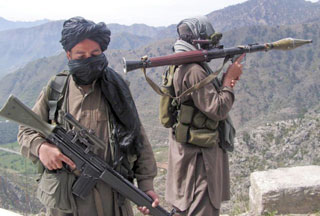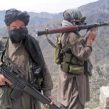
Taliban Exploit Shi’a-Sunni Divide in Pakistan’s Kurram Tribal Agency
Publication: Terrorism Monitor Volume: 8 Issue: 15
By:

Kurram Tribal Agency in northwest Pakistan continues to be a flashpoint of violence created by the volatile sectarian strife between Shi’a and Sunnis and the gradually strengthening hold of the Taliban in the area. Kurram Agency, the only Shi’a majority tribal agency in Pakistan, has been the scene of Sunni-Shi’a sectarian clashes every five to seven years since the creation of Pakistan in 1947, and even before that. However, those clashes were never allowed to continue for more than two to three weeks before tribal leaders and government authorities would intervene. The situation has taken an ugly turn since the arrival of the Taliban in the area three years ago. Militants have killed 3,100 people since July, 2007 (Dawn [Karachi], March 27).
Pakistani authorities have failed miserably in controlling the persistent violence. During the last two years, the roads in Kurram agency have remained closed and people have been trapped in their areas. The Shi’a community as a whole and some Sunni tribes like the Mangal in Upper Kurram find it extremely difficult and risky to move out of Kurram Agency. Shi’a cannot travel outside the agency through the Tal-Parachinar road connecting Kurram agency with Peshawar as it is controlled by the Taliban. The Mangal who live in Upper Kurram cannot get out of their area because they cannot travel through Shi’a populated areas for fear of being attacked and killed by the Shi’a. Relief and food supplies rarely reach the Shi’a areas due to the road blockades.
Both the Shi’a and Sunni people of Kurram agency have to travel through war-torn Afghanistan to reach Peshawar and other parts of Pakistan. There is a severe shortage of the basic commodities needed for everyday life and even if some items are available they are extremely expensive. Many government servants have gone unpaid for the last two years and some have even tried to commit suicide. [1] The government has been unable to open the road or provide security for the food supplies on a permanent basis. In the first week of March, a convoy of people escorted by security forces was attacked by suicide bombers, who killed 14 people and injured 25 others. (Geo TV, March 5). In the last week of March, six truck drivers who were returning from carrying goods to the Shi’a communities of Upper Kurram were kidnapped and killed by the Taliban. A letter found in the pocket of one dead driver warned that anyone supplying goods to the Parachinar Shiite community would meet a similar fate (Samaa.tv, March 27).
Many natives of Kurram agency hold state policies vis-à-vis Afghanistan responsible for the death and destruction in Kurram. According to them, when ISAF strengthened its posts on the border with Waziristan in 2006-07 after the Pakistani government signed peace agreements with the local Taliban, al-Qaeda and Taliban fighters tried to pass through the Kurram agency to cross over into Afghanistan as Kurram provides the shortest route to Kabul. The Turi tribe and other Shi’a refused to give passage to the Taliban through their area and complained to the local authorities, who did not take any action. The Turi refusal to provide the Taliban this safe passage has led them to their current dire situation, in which they are being punished by the Taliban through continuous attacks and incessant blockades. [2]
Both Shi’a and Sunni elders hold individuals in official positions responsible for playing a role in the ongoing tensions in Kurram, in particular in Parachinar, the capital of the agency. Shi’a elders assert that two political agents of the area asked them to facilitate the Taliban’s movement or be ready for the consequences (The News [Islamabad], October 19, 2009).
The government has continued to periodically attack and shell Taliban positions with gunship helicopters. Seven Taliban were killed in helicopter strikes by government forces in the third week of March (Daily Times [Lahore], March 22). There have also been bursts of internal fighting between different Taliban groups. In a recent incident, 21 militants affiliated with the group led by Mullah Toofan (a.ka. Nur Jamal) were killed and 46 others made hostage when they exchanged fire with their rivals in the Mullah Rafiq group in the Nika-Ziarat area of central Kurram Agency (The News, March 19).
To defend themselves, all of the Kurram tribes have established their own lashkar (tribal militia), but these lashkars are no match for the Taliban. On March 20, Taliban forces attacked the Masozai tribal lashkar to avenge the death of 12 of their colleagues who were killed a day earlier when the lashkar attacked the convoy of Taliban commander Mullah Toofan. After several hours of fighting in which 15 persons were killed and around 20 were injured from both sides, the local tribal lashkar was left with no option but to surrender to the Taliban. The Taliban accepted their surrender with the condition that the tribal elders would be loyal to the Taliban, would dismantle the current lashkar, would never raise another anti-Taliban lashkar in the area again and would support the Taliban’s efforts in implementing Shari’a. After these guarantees and promises, Mullah Toofan freed 22 hostages taken from the Mosazai lashkar. [2]
Notes:
1. Email interviews with Engineer Sadiq Ali Turi – a Turi native of Kurram Agency and Iqbal Hussain Bangash, a government official from Kurram Agency, March 31, 2010.
2. Email interview with Engineer Sadiq Ali Turi, Kurram Agency, March 31, 2010.





